This piece demonstrates quite well what a bunch of tunnel-visioned killjoys they were. Just like the their equivalents today. Some things never change. The capacity to twist any facts to suit their own warped world view is breathtaking.
"Free Bread and Government Ale
It is sometimes said that the Government has done great things in dealing with Drink. The truth is that not only does the British Government stand almost alone in the English-speaking race as the patron of Drink in war-time, but no other British Government even in time of peace has subsidised Drink as our war Governments have. It has done it in many ways, but most shameful of all is the subsidy of Drink at the cost of food. Less bread and more beer is becoming a watchword of Downing Street for winning the war.
It would be the aim of any sane man in power in days like these to keep down the price of bread and to put up the price of beer; but the policy of the British Government does the opposite. While Drink puts up the price of bread, the Government keeps down the price of beer.
It has been our policy for generations to keep up the price of Drink. We have sacrificed the development of cheap industrial alcohol, with all the blessings it would bring to industry, in order to keep up the price of Drink. To reduce the temptation of Drink we have taxed it so highly that alcohol became too dear as a source of power, and no man can say how great has been the financial loss to the nation in consequence.
But will it be believed that just now, when for the first time in our history we are giving people bread, the British Government has departed from our traditional policy and deliberately kept down the price of Drink? By order of the Government the price of beer is kept low for a people who cannot afford to pay for bread.
And what, in the meantime, is the Government doing with bread? The price is too high for our people, and the War Savings Committee gives us one of the reasons why. It says that the price of bread is increased by the immense destruction of food for Drink. It is obviously so,, seeing that Drink destroys about one-eighth of our bread supplies. We give this trade our food, allow it to put up the price Of bread, and when the price is too high for our people the Government pays the difference from the taxes. We are to pay this year £40,000,000 towards flour, and £5,000,000 for potatoes: how many millions of this huge sum are actually due to Drink?
Who has not been humiliated in these days, walking through the streets of our towns, to see in the windows of our taprooms the flaring announcement of Government Ale? When before did any British Government lend its name to stuff like this, the stuff that sends a girl out reeling in the street or tempts some Anzac lad until he falls as if dead on a crowded London pavement? Free Bread and Government Ale— we are getting on!
It would seem to ordinary people that by this time the patronage of Drink at the cost of bread had gone quite far enough. But go into the market and try to buy corn. There is not enough wheat, and so we mix barley for our bread: there is not enough barley, and so we mix potatoes. What is it that happens now in any corn market in the United Kingdom? The miller is there and the maltster is there, both under Government Orders not to pay more than a fixed price for corn. But will it be believed that the maltster is allowed to go round the market to buy up all the best barley at 5s. 3d, a quarter more than the miller is allowed to pay? It is done every day, and mills that have never closed before since war began have been closed down because the brewer took the corn they should have had for making bread. Worse than that, however, are the actual facts, for millers, unable to buy home-grown barley at 68s. a quarter, are compelled to buy from our costly reserves of Californian wheat at 88s. a quarter. The miller, that is to say, pays an excess of 20s. a quarter, and the Government subsidises him accordingly. The Government's policy of obliging the brewer compels the miller to pay a price which will compel the Government to subsidise him. We may leave it to legal minds to say how near this comes to unconstitutional finance; but plain men have other ways of conducting honest business.
The policy of the Government, moreover, puts the best barley into beer and the worst into bread. It is not surprising that War Agricultural Committees and other county authorities have protested strongly against this abuse of Government authority, which works so gravely against the national interest and so richly for the profit of the brewers. We read on another page of the danger of reducing the nourishing power of bread, but the policy is deliberately continued by the Government, which even issues an Order for barley screenings—left by the brewer for cattle and pigs—to be turned into bread.
Well may we ask what grain is grown for. It is true that the Government was compelled to interfere to stop brewers from using wheat for beer, but the brewer has got the best barley, and got it with a Government guarantee. He can take the barley from a farmer who would rather keep it for his cattle, for the farmer who keeps cattle and poultry is not allowed to give them barley. He must sell it to the miller or the maltster, and give the maltster the best chance.
The Prime Minister, in his heroic mood, calls upon the nation to clothe itself in the spirit of our fathers, who swept away a military despotism a hundred years ago, but he forgets that when our fathers beat Napoleon they stopped spirits to do it. They made it a crime for a distiller to use a grain of barley; we have made it a crime for a farmer to use it. The farmer must sell the best barley for beer and the rest for bread; and if the barley will not go round the baker must make up with potatoes. Barley leavings and potatoes in their skins—anything will do for the people and the pigs so long as the brewer gets the golden corn.
With its tenderness towards beer and those who make it, the Government must cherish great solicitude for those who drink it. Having kept up the supply of Drink and kept down its price, the Government must be careful lest the people, believing in the honesty of the King, follow his Proclamation and give up using grain in anything but bread. For what, then, would become of all the beer?
So we are rationing grain for bread only; we may eat only so much, but we can drink as much as we like in beer. You may sit in a restaurant and ask in vain for another piece of bread—you have had your ration; but the next man may have had his ration and may drink the rations of as many other people as he likes. We have seen already that drinkers may double their rations of grain while those who follow the King are likely soon to be put in the dock for doing it. Give the crumbs to the birds and you are fined £5; give a loaf to the brewer and you are patriotic. It is the way the Government chooses to go while Germany sinks our food-ships and our Allies are short of bread.
There will still be those who maintain that beer is needed by hard workers. It is one of the false coins to which the policy of the Government has given new currency in these days. But even such critics will find it difficult to defend that policy of the Government which destroys the bread rations of 200,000 people every week merely to improve the colour and taste of beer. Our people are not quite fond enough of beer, so the Government sets aside 500 tons of barley every week to make it tempting for them.
The Government goes out crying "Wolf!" and nobody will believe. Of course they will not believe. If we have bread enough to make beer with, bread enough to make beer a pretty colour with, so much bread that we can afford to penalise the miller against the brewer, we have bread enough to eat. The nation has not so lost its senses as to believe that, while we have grain to drink we have not enough to eat. Of course our people will not believe. If the Government wants to be believed, let it act as if it believed itself.
"The parasite" by Arthur Mee, 1917, pages 37-40.
















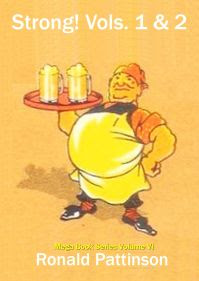


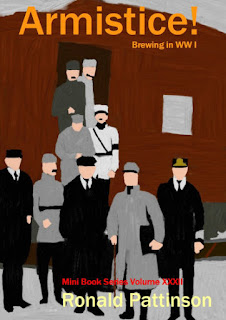
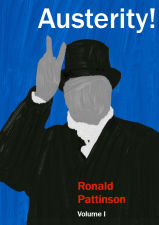







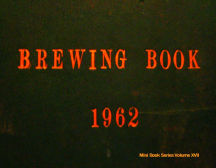
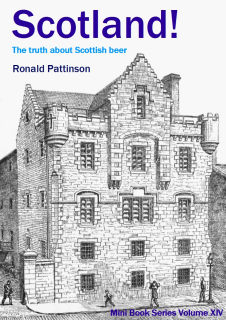
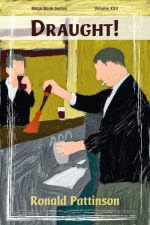








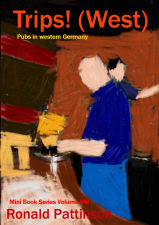
































4 comments:
Interesting references to biofuel there- I had no idea it had such a history.
It's like the Daily Mail!
* Don't let facts get in your way.
* You don't really need to understand what you are talking about.
* You audience have already made up there mind, so give them what they want.
* And write in the most tedious, boring, repetitive style possible. That way your opponents will lose the will to live.
Arthur Mee - I used to read his "Children's Encyclopedia" when I was a small boy, as my mother had a copy from the 1930s. Early in the 20th century, if not before, the teetotallers picked up on the idea that brewing (and distilling) "destroyed" grain that could be used for food - completely ignoring, of course, (a) that barley used in drink production wouldn't be used in bread, and (b) beer had a considerable calorific value too.
Arthur Mee - I used to read his "Children's Encyclopedia" when I was a small boy, as my mother had a copy from the 1930s. Early in the 20th century, if not before, the teetotallers picked up on the idea that brewing (and distilling) "destroyed" grain that could be used for food - completely ignoring, of course, (a) that barley used in drink production wouldn't be used in bread, and (b) beer had a considerable calorific value too.
Post a Comment